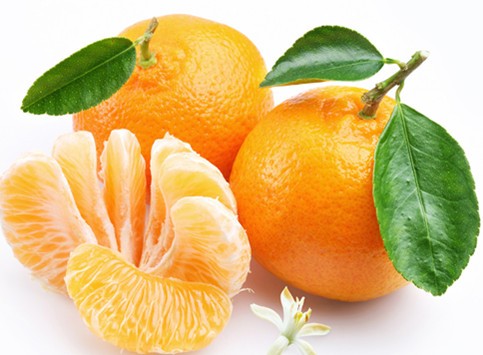In autumn and winter, oranges are on the market. Some people eat two or three kilos when they eat oranges. Others worry about eating oranges. Some people worry that oranges are “getting hot.” Some people say that oranges are stained. Others worry that their skin will turn yellow if they eat too many oranges. Oranges Do they make people angry? How to eat oranges? Today we will talk about oranges from 5 aspects.

1. What are the nutrients of oranges?
Tangerine is one of the citrus fruits. It has a sweet and sour taste and is rich in vitamin C. The content of vitamin C in citrus fruits is usually 20-30 mg/100 g, which is more effective than the other two star fruits in winter apples (1-5 mg/100 g) and pears (4-8 mg/100 g). Too much.
When fresh fruits and vegetables are lacking in the winter season, oranges are a good source of vitamin C. Basically; a medium-sized orange can meet half of a child’s daily vitamin C needs.
2. If you eat too many oranges, will you get angry?
“Getting on fire” is a difficult concept to define. The so-called “getting up” is the ancient people’s summary of a type of body feeling, and the concept is very vague. But many people will say that after eating oranges, they will get angry and have red and swollen gums and mouth ulcers. What is going on? In fact, for oranges, the culprit that caused the “incendiary” is sugar. Oranges are high in sugar. Eating too many oranges means eating a lot of sugar. The high sugar content can make your throat dry and astringent; some sensitive people may also experience gum and stomach discomfort due to the acid in oranges. If the mouth is not cleaned in time after eating, these food residues and sugar will easily cause bacteria in the oral cavity and cause inflammation. The initial stage may be inflammation of the gums. The main characteristics are red and swollen gums, easy bleeding, and swelling.
3. Are oranges so red that they are all dyed?
Previously, orange-dyed videos have been circulating on the Internet, so many people are worried, and everyone should look at it rationally.
First of all, even if it is dyed, the safety risk is very low. The amount is small. The health hazard is not much. Secondly, the surface of the orange peel is oily. Even if you want to dye it, the dye is difficult to penetrate. Generally, touch it with your hand. If your hand turns red, it may be dyed, so don’t buy it. When eating oranges, you have to peel them. The dyeing is at most the epidermis. The flesh can’t get in. You can eat them after peeling them.

4. If you eat too many oranges, will your skin turn yellow?
Do some people say that if you eat too many oranges, your skin will turn yellow? Indeed, this is not a rumor. Oranges are rich in carotene. If you eat many oranges, the human body will consume too much carotene, which cannot be metabolized. If the content in the blood is too high, the skin will turn yellow. This condition is called “high.” “Caroteneemia” is also called “orange disease.”
However, it will only affect the “face value” quickly and not affect health. As long as you don’t eat oranges for a while, you will be able to return to normal in a week or two. In addition to oranges, carrots, pumpkins, papaya, mangoes, and other fruits and vegetables are also rich in carotene. If you find that your complexion has turned yellow recently, you should also see if you have eaten too much of these fruits and vegetables.
5. How to eat healthier?
The sugar content in oranges is 11.9% on average, and sweet oranges are even higher. If you eat too many oranges, your energy intake is not low. Therefore, don’t eat too many oranges. My country’s dietary guidelines recommend that the average adult eats about 200-350 grams of fruit per day. When converted to citrus, it is almost 2 to 3 medium-sized oranges. If you like to eat, it’s okay to eat one or two more, but you must pay attention to eating fewer other staple foods and cleaning your teeth. At the same time, it is not recommended to squeeze oranges into juice. After orange juice is squeezed, almost all dietary fiber is filtered out, and the sugar content is too high, which is very harmful to health. Compared with whole fruit pulp, fruit juice does not have any nutritional advantages, and it has no important meaning for people’s healthy and balanced diet.














